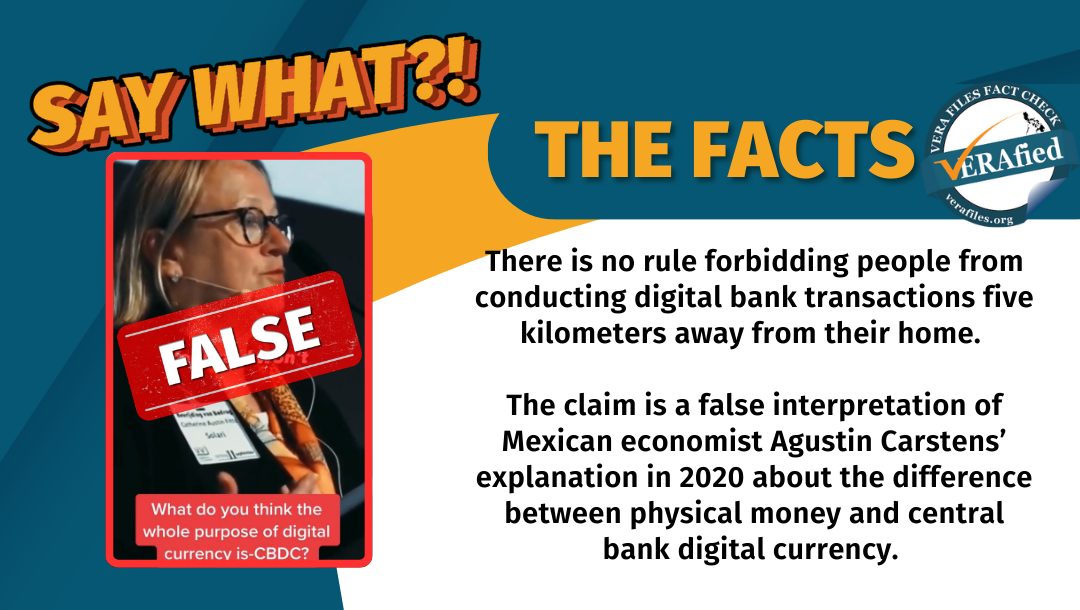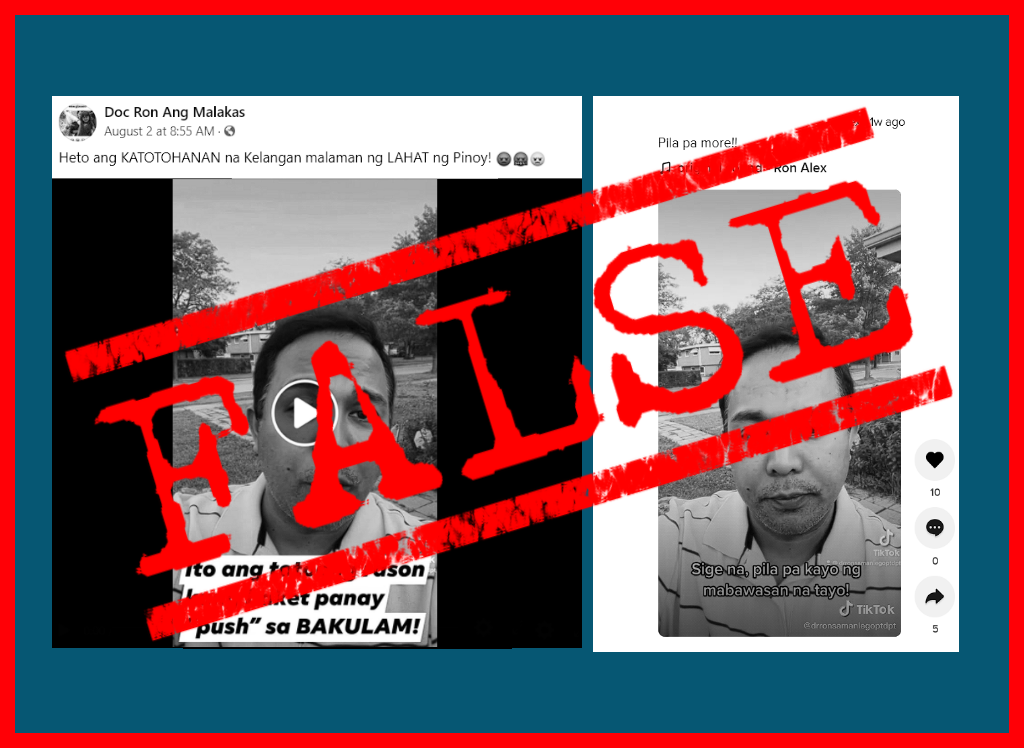A Facebook (FB) Reel featured a woman who claimed that a new rule would forbid people from conducting digital bank transactions from more than five kilometers away from their homes. The statement is false.

The Reel in question, reshared by a Filipino Facebook netizen on Aug. 23, shows a woman claiming that:
“If you have money in your bank account… The new rule is, you’re not allowed to transact further than five kilometers from your home. Your card won’t work more than five kilometers from your home. If they don’t want you buying pizza, you can’t buy pizza with money in your bank account or with your card. It is complete control.”
The woman in the video is Catherine Austin Fitts, president of non-profit organization Solari Inc., who made such a claim during a talk on Sep. 11, 2021. She falsely interpreted the following statement by Agustin Carstens, general manager of the Bank for International Settlements (BIS), about the difference between physical and central bank digital currency (CBDC):
“For example, in cash, we don’t know for example who is using a 100 bill today, we don’t know who is using a 1000 peso bill today. A key difference with the CBDC is that a central bank will have absolute control on the rules and regulations that will determine the use of that expression of central bank liability.”
Source: International Monetary Fund (IMF) YouTube channel, Cross-Border Payment—A Vision for the Future, Oct. 19, 2020 [timestamp 24:12 to 25:06]
“We reviewed the video of the IMF panel and confirm[ed] that Mr. Carstens never proposed or mentioned a restriction on bank transactions outside [the] 5 kilometers radius of their homes. Indeed, we have never heard this suggestion before today, and it did not emanate from the BIS,” Bettina Eberhard from the BIS center told fact-checking organization Logically.
During the 59-minute IMF forum discussion, Carstens only discussed the challenges of operating and coordinating digital currencies between different central banks, and enumerated plans to establish BIS innovation hubs in five more countries.
Fitts made the claim after saying that a group of bankers met in 2019 to implement a “financial reset,” which would allegedly force people to use a central bank digital currency (CBDC) and receive a universal basic income.
A group of bankers did meet in Jackson Hole, Wyoming in 2019 to talk about a “Going Direct Reset” – a proposed fiscal policy to help the economy by providing income support, suspended collection of tax revenues, and expansion of funding-for-lending facilities.
The erroneous FB Reel garnered a total of over 62,000 reactions, 5,900 comments and 77,000 shares. It appeared ten days after the Bangko Sentral ng Pilipinas said it plans to complete a pilot run of a Philippine CBDC by the end of the year.






